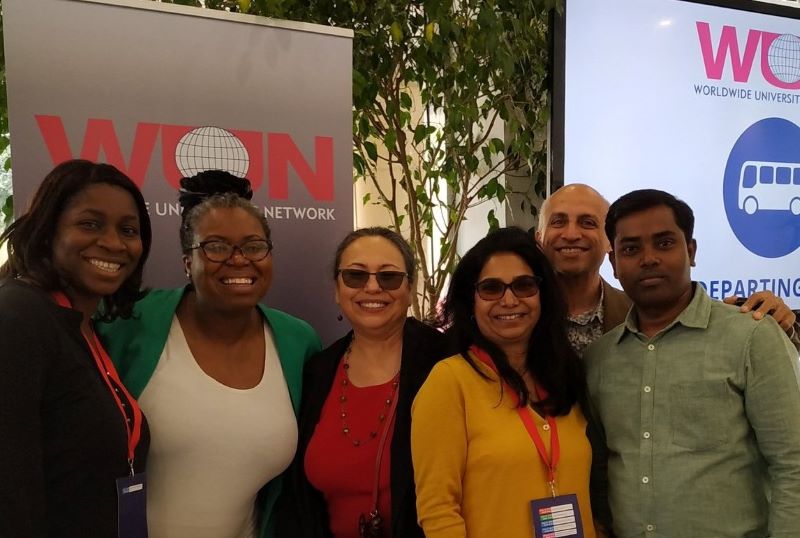
Researching diversity, inclusion and student success: Towards a global campus climate framework
Goals
- Establish a network of scholars to engage in comparative research on
inclusion, equity and diversity in higher education (HE) - Develop relevant conceptual models and approaches to study problems of inclusion, equity and student success in diverse country contexts. The
countries represented are the U.S., England, India, Ghana, South Africa and Ireland.
Rationale
The rapid expansion of HE globally and increased pressure on institutions to serve diverse student populations have placed HE inclusion and equity at the forefront. Research on this issue is scattered, uneven and in many countries at a nascent stage. The RDF will support the development of a multi-country scholar network to advance research on student diversity and success in HE by establishing a shared set of concepts, theories and methodologies that is informed by a comparative approach.
Approach
Collaborators will develop conceptual papers outlining key concerns for diversity, inclusion and equity in HE in their country context. We will hold virtual meetings and a symposium during the 2019 WUN Conference to examine campus climate theory and frameworks, specifically the Multi-Contextual Model for Diverse Learning Environments (DLE) and assess their relevance to collaborator countries. The collaborators will adapt and refine the DLE for relevance across diverse contexts.
Outcomes
Our network will position student inclusion and success as global concerns that merit collaborative research for effective HE policies. We will generate a shared framework to assess HE environments in different countries, which will be disseminated through conceptual papers and in-country colloquia events.
Post-grant period, we will sustain the network by:
1. Disseminating our work through conferences and publications
2. Seeking funding to conduct empirical research that will apply our framework to additional countries (3) developing an empirical comparative study to further refine the DLE, which will continue to be tested and validated as our global network grows into the future.
